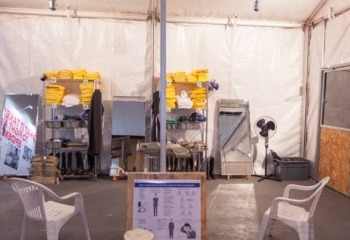
Insights
Ebola’s Grim Reminder
March 18, 2015

March 18, 2015
Last summer, I watched with the same horror many felt as reports from West Africa emerged of Ebola’s deadly toll. The virus has devastated families, wreaked havoc on health systems and savaged economies.
But to be frank, I’m much more worried that next time – and there will be a next time – it will be far worse.
Today, Bill Gates makes the case at both TED and in the New England Journal of Medicine that if Ebola has taught us anything, it is how dangerously unprepared we are to deal with a global epidemic. As he so aptly describes the world’s response to Ebola in the New York Times, “The problem isn’t so much that the system didn’t work well enough. The problem is that we hardly have a system at all.”
In an essay I published in 2013 in Lawfare, I raised similar questions about our national security – but in the context of a strategic biological attack. Many of the preventative measures we could take to improve our institutional and infrastructural defenses against bioterrorism are the same ones that would save lives in the event of a pandemic or an emergent pathogen. Antiviral drug research and development, monitoring systems for detecting outbreaks early or coordinated emergency response protocols to name but a few.
Because the next time it might not be Ebola. It might be a new disease like SARS or MERS. Or it might be a strain of flu like the 1918 Spanish Influenza Pandemic. Instead of thousands of deaths, millions, or even hundreds of millions of lives could hang in the balance.
This helps explains in part why Intellectual Ventures has been hard at work on a number of outbreak- related projects over the last six months. Small measures to be certain, but ones I am proud to see contribute to the scientific research whole:
I do not profess to be an expert in defense, let alone global health. But I will happily be accused of being a technological optimist. I share with Bill an unwavering belief in human ingenuity. I believe we will invent our way out of these problems, as we have done in so many cases before.
But that’s also why we should so listen closely to Bill’s call to action: we need a global warning and response system for outbreaks.
Because Ebola is a tragedy, but it could very well have been a catastrophe.